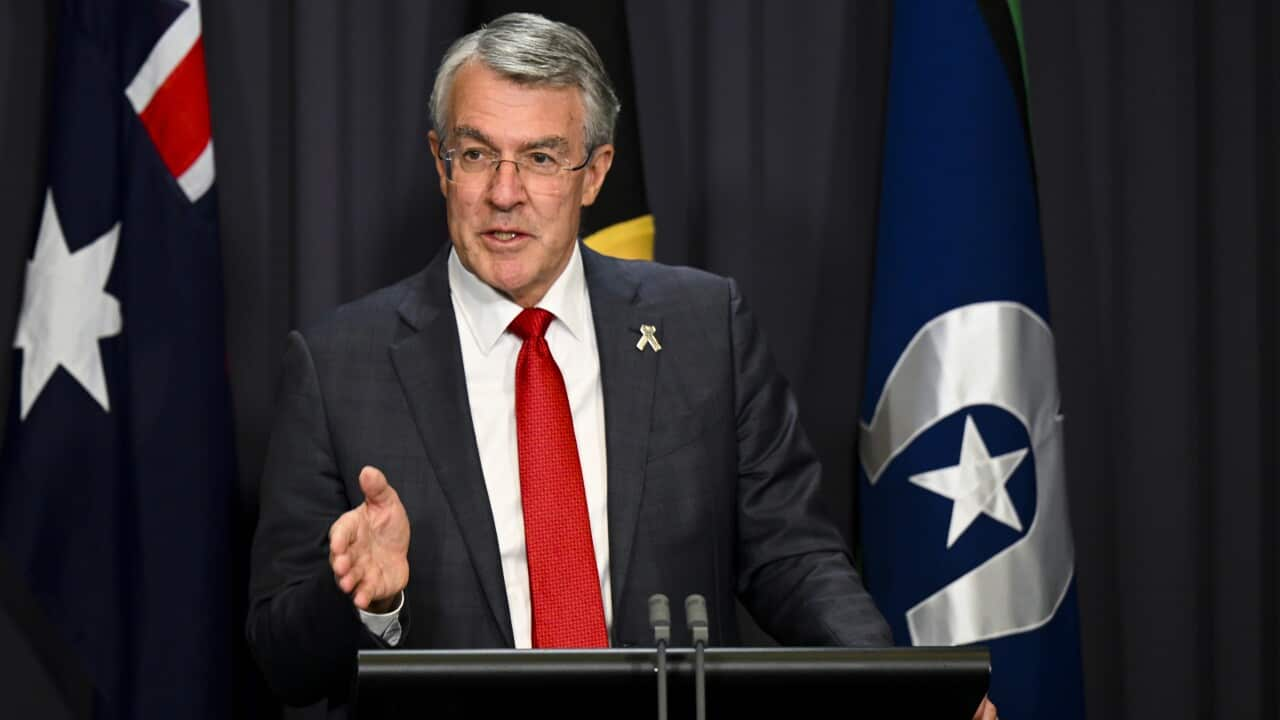Key Points
- The Administrative Appeals Tribunal has operated since 1976 and reviews federal decisions on a range of matters.
- The federal government will scrap and replace it with a new body that will likely be operating by the end of 2023.
- Matters currently before the tribunal will be unaffected.
The tribunal that reviews federal decisions will be scrapped after becoming what the government describes as a "disgraceful exhibition of cronyism".
Attorney-General Mark Dreyfus announced on Friday would be replaced by a new body.
Why is Labor scrapping the AAT?
The AAT reviews decisions on everything from welfare payments to Australian citizenship. It's also considered a crucial appeals process for migrant and refugee visa-related decisions.
It has operated since 1976, but in recent times has been heavily criticised for being stacked with people with connections to the former coalition government.
"The AAT's public standing has been irreversibly damaged as a result of the actions of the former government over nine years," Mr Dreyfus said.

The Opposition's legal affairs spokesman Julian Leeser accused Labor of wanting to start a new body from scratch to stack with its own people. Source: AAP / Mick Tsikas
"This was a disgraceful exhibition of cronyism by the Liberal Party," the attorney-general said.
The new body is expected to be operating by the end of next year.
Matters currently before the tribunal will be unaffected.
What will the new body look like?
Mr Dreyfus said the government wanted to ensure appointments were merit-based and appropriately qualified.
"Australians rightfully expect honesty, accountability and integrity in government," he said.
Mr Dreyfus said current members of the tribunal would need to reapply for their positions once the new body had been created.
He said the decision to scrap the AAT came as a result of long consideration and the government was proposing to appoint about 75 additional members to deal with .
When asked if people who had associations with the former coalition government would be barred from being appointed, Mr Dreyfus said the process would be based on merit.
On Labor-connected appointments, Mr Dreyfus said a set of criteria would be applied for every individual considered for a role.
He said a task force led by former High Court judge Patrick Keane would consult on the design of the new body and legislation would be introduced next year.
What was the reaction?
The Opposition's legal affairs spokesman Julian Leeser accused Labor of wanting to start a new body from scratch to stack with its own people.
"This government is all about settling political scores, this announcement undermines the work of the tribunal in holding this Labor government to account," he said.
"The Labor Party campaigned heavily on a platform of integrity and transparency. Today's announcement achieves neither aim."
But the Australia Institute's accountability program director Bill Browne said the government took the right action in scrapping the body.
"A pattern of political appointments to the AAT, particularly in the last nine years, has undermined confidence in the tribunal and made a complete overhaul necessary," he said.
Research from the institute showed political appointments reached as high as 40 per cent under the former Morrison government, compared to six per cent during John Howard's coalition government.
Independent MP Sophie Scamps said the AAT's "weak" processes allowed the body to be "manipulated and stacked with friendly political appointments".
"People need to be able to trust our democracy and the decisions being made by these institutions and that means ensuring there is an open, transparent, merit-based and independent process for government appointments," Dr Scamps said.











